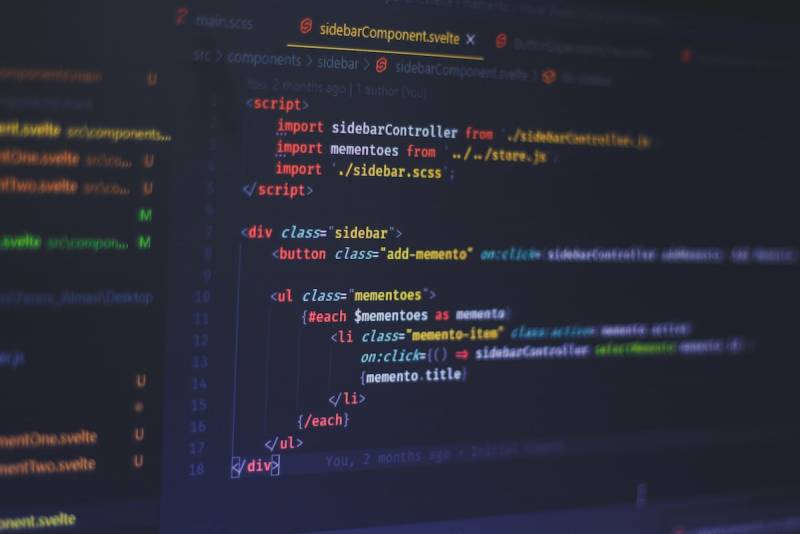Computer programming education is quickly becoming a necessity for today’s students. In particular, learning to code improves a child’s:
- Critical Thinking Skills
- Executive Functioning Abilities
- Overall Academic Performance
Read Also: North Korea releases photos of Kim Jong Un watching missile launch
Coding isn’t just communicating with a computer – it’s learning how to think.
As children learn to code, they develop hard skills such as critical thinking and problem-solving while increasing their capacity to communicate and manage their time (executive functioning). In addition, coding courses build academic skills like math and reading. Together, these valuable skills play key roles in improving overall academic performance. And, as an added bonus, the ability to code will open up new and exciting career opportunities.
In recent years, computer programming or coding has become an integral part of our daily lives. Coding is the method of giving a computer instructions to perform a specific task, whether it’s running a refrigerator or water heater or the sophisticated programs necessary for self-driving cars, robot-assisted surgery, and online banking. Plus, coding is a language that can be used to change our world for the better, as exemplified by new life-saving apps or the formula to recycle plastic.
To help understand the many benefits of coding and the impact it can have on a child’s academics, Tynker recently conducted a study of over 1,000 parents *1 with children between the ages of 5 and 18 as well as nearly 140 teachers *2.
Learning to Code Improves Critical Thinking
When kids code their own video games, art, and websites with Tynker, they’re developing valuable skills like critical thinking. Coding helps kids understand the cause-and-effect relationships used to make strategic decisions. When programming, kids must consider all the blocks or commands that can fit in the code. From there, kids must use critical thinking to decide what fits best!
Well over 90% of teachers and parents surveyed believe that coding helps children develop their critical thinking skills as well as their creativity and ability to problem-solve.
“I think schools should make coding mandatory for children from 3rd grade to college. It improves the thinking of a child. It lets imagination flow free and allows the child to create amazing things.” Tynker Parent – 9/2021
There’s no better motivation for children to learn how to problem-solve than the realization that learning to code can bring their creative dreams and visions—and video games to life.
Learning to Code Improves Executive Functioning Skills
Executive function is a set of mental skills necessary to control behavior. In our survey, both teachers and parents noticed that learning to code increases a child’s soft skills such as teamwork, collaboration, communication, organization, and time management.
Coding with computers requires logical, well-organized communication. Learning to think and communicate in this way can boost interpersonal skills such as the ability to collaborate and work with a team. And when kids learn to code, they quickly discover what it means to be organized and manage their time, key skills for any endeavor.
The majority of teachers and parents agree that coding is having a positive impact on the types of skills that can really make a difference for children in school and potential work environments.
“Coding speaks to students in a way that traditional teaching does not. Students become stronger problem-solvers on their own and they are more engaged when completing coding activities.” Tynker Teacher – 9/2021
Learning to code Improves Academic Performance
In addition to these developmental skills, computer programming also has a positive effect on academic skills. Our survey shows that almost 9 in 10 teachers and parents believe that learning to code improves overall academic performance, especially in mathematics, while almost two-thirds saw better grades in reading and more than half in writing.
Of course, coding and math make sense together, but there’s more to it. For example, when students program a game they use variables and arithmetic. And, when they make shapes with a pen drawing, they use geometry.
However, learning to code also reinforces a student’s core reading and writing skills, since coding demands the same accuracy that is fundamental to comprehension. As a result, more and more schools are beginning to add coding to their core curriculum.
Coding Builds Self-Esteem and Empowerment
It’s clear from the data that a majority of teachers and parents feel coding is essential to a child’s education, stating the importance of both boys and girls learning computer programming for their future. However, concerns were expressed about equality in the opportunity to learn to code.
“We need females to contribute to the CS world. Both genders are needed to complement each other in any successive project environment.” Tynker Teacher 9/2021
“Girls need to know that they can be successful in programming and that their attention to detail is vital in coding.” Tynker Parent 9/2021
Teachers believe that it’s important to make sure girls feel empowered to learn how to code and enjoy its benefits. Additionally, they say that coding builds self-esteem, showing girls that they’re just as good as boys in math and science, and that tech can be a viable career option for them too.
“I don’t think it’s important whether it’s a boy or girl; yes there is a lack of women in tech, I am also a woman in tech, everyone is entitled to pursue their interests. It is more important to nurture their interest/curiosity in coding. Then provide them platforms like Tynker to explore/discover/innovate/create.” Tynker Parent 9/2021
Teachers and parents were clear that both boys and girls should be taught coding to improve not just their education but also their future career opportunities.
Top 5 Broader Benefits of Learning to Code
A Summary of Parent/Teacher Thoughts:
- Critical Thinking
Coding trains your brain to approach problems and their solutions differently by building the capacity to monitor, evaluate, and control thinking while completing new tasks.
- Problem-Solving
Coding requires a trial-and-error approach that improves your ability to solve problems. If a particular piece of code isn’t working, you’ll develop methods to think through the individual issues and steps in finding a solution.
- Creativity
Creativity just needs to be channeled and released. Steps in the creative process include observation, asking questions, drawing connections, experimenting, and getting different perspectives. Each of these elements empowers the imagination to create original coded projects.
- Mathematics
Computer programmers pick up math skills while learning to code. For example, when students program a video game they use the variables, expressions, angles, and numbers key to arithmetic and geometry.
- Teamwork
There are a lot of opportunities to build projects together in coding communities, where programmers learn to manage their time and team with discussion, compromise, and negotiation.
When asked to finish the sentence — I want kids in school to learn coding concepts, teachers and parents most often talked about skill-building, career opportunities, and developing skills such as critical thinking and problem-solving.
“Coding is an increasingly beneficial skill that will open their eyes to future employment opportunities. It also supports our core academic content in a fun and novel way.” Tynker Teacher – 9/2021
Teachers and parents agree that coding develops the necessary hard and soft skills for school while opening up countless career opportunities in a fast-growing tech industry that’s in constant need of creative and knowledgeable programmers.




